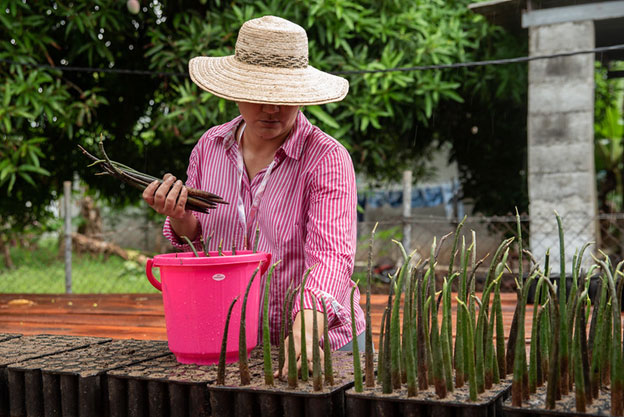NEW YORK, Nov 26 (IPS) – As the world faces escalating challenges, from climate change to biodiversity loss and ecosystem degradation, there is now a rapidly expanding understanding that these crises are deeply interconnected.
This wider recognition of the interconnectedness of these planetary crises is an opportunity to bring interconnected solutions to the foreground and the people who are driving these solutions forward.
Indigenous Peoples and local communities have long adopted integrated solutions that connect climate action, nature conservation, and inclusive economic growth, by amplifying their voices we can accelerate our transition to a sustainable, resilient future.
The United Nations Development Programme (UNDP) is at the forefront of this effort, fostering inclusive governance, building partnerships, and promoting innovative approaches that protect people and the planet.
The urgency of addressing climate change is undeniable, but climate action alone is insufficient. The rapid degradation of ecosystems and loss of biodiversity exacerbate climate impacts, endangering both the environment and people’s well-being.
Forests, wetlands, and other ecosystems are essential in regulating the climate, supporting livelihoods, and ensuring food and water security for billions.

Acknowledging that human and planetary health are inseparable, this year’s 16th Conference of the Parties (COP16) to the Convention on Biological Diversity theme, “Peace with Nature,” emphasized the need for a harmonious relationship with nature. As societies, we are an integral part of the natural world, and only by reversing habitat loss, protecting ecosystems, and creating spaces where biodiversity can thrive can we lay the foundation for a sustainable future.
Nature is embedded in all aspects of life, making it essential for COP16 participants—from governments to Indigenous communities and the private sector—to commit to an inclusive and equitable process in building peace with nature.
The Latin America and Caribbean region, considered a “biodiversity superpower,” holds one of the world’s largest reserves of natural capital, covering 46.5 percent of forested land. This region is home to six of the world’s most megadiverse countries (Brazil, Colombia, Ecuador, Mexico, Peru, and Venezuela), including 11 of Earth’s 14 biomes and the Amazon rainforest, the planet’s most biodiverse habitat.
…



